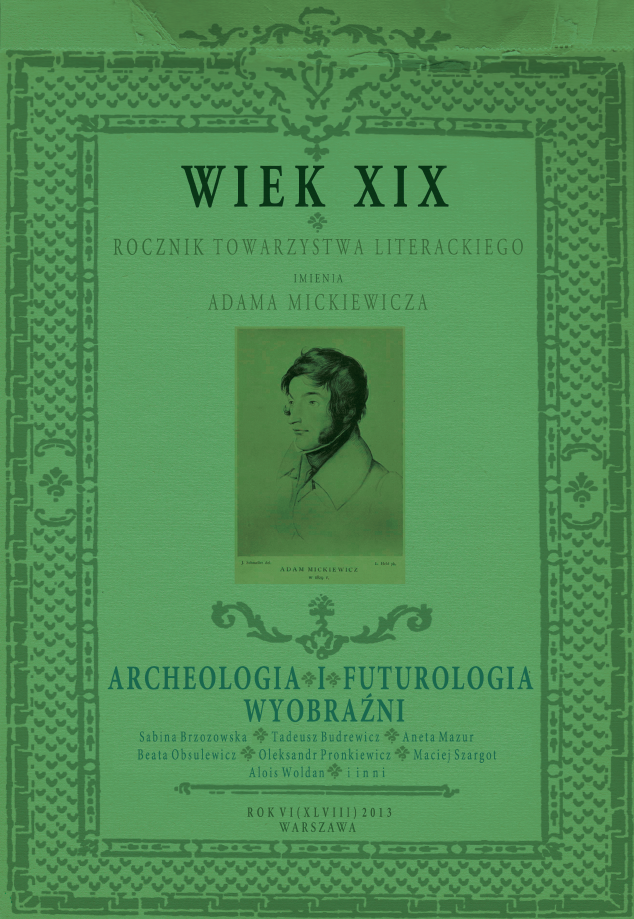Galilaee vicisti? Rzecz o ostatniej scenie „Nie-Boskiej komedii”
Galilaee vicisti? The Case About the Last Scene of “Not-Divine Comedy”
Author(s): Maciej SzargotSubject(s): Language and Literature Studies, Studies of Literature, Polish Literature
Published by: Towarzystwo Literackie im. Adama Mickiewicza
Keywords: Zygmunt Krasiński; "Nie-Boska komedia"; Romantic drama; revolution; utopia; apocalipsis
Summary/Abstract: The vague ending of Krasiński’s drama has provoked disputes among the researchers. The first refers to the organic or inorganic nature of the last scene while the second concerns the optimistic, utopian versus the pessimistic, apocalyptic significance of "Not-Divine Comedy". Their interpretative theses are difficult to prove though – the explicit resolution seems simply impossible in this case. The research tends to support Wojciech Gutowski’s thesis that Pankracy’s vision is his personal figment of the imagination. The supposition is supplemented by the thesis that the figure of Christ as presented in the drama is made of Pankracy’s fears and apprehensions, his sense of guilt, and his fear of punishment. It is also linked to his antagonist – as if he were an embodiment of Count Henryk coming back for revenge. As a consequence, the victory of the Galilean means that Pankracy is defeating himself, he cannot stand the fear, he is a victim of his own illusion of God the Avenger. It does not denote the absence of God in "Not-Divine Comedy", but rather his silence. In view of the fact that the ending is open and inconclusive, the future of the world remains a mystery.
Journal: Wiek XIX. Rocznik Towarzystwa Literackiego im. Adama Mickiewicza
- Issue Year: LXVIII/2013
- Issue No: 1
- Page Range: 227-239
- Page Count: 13
- Language: Polish

